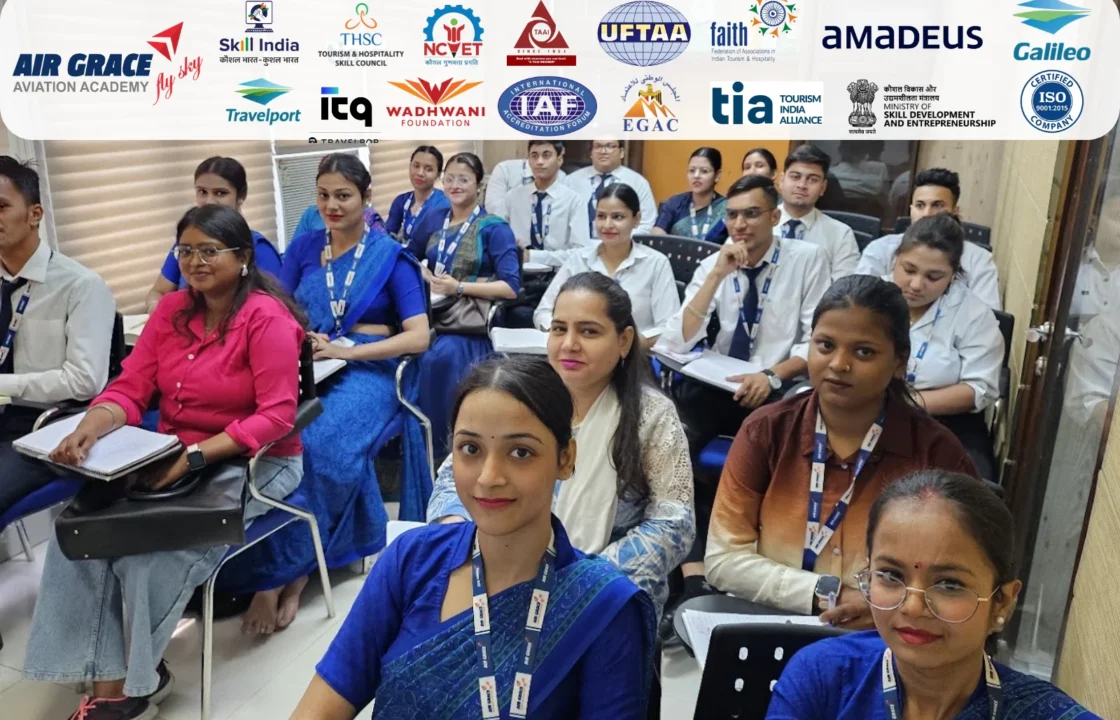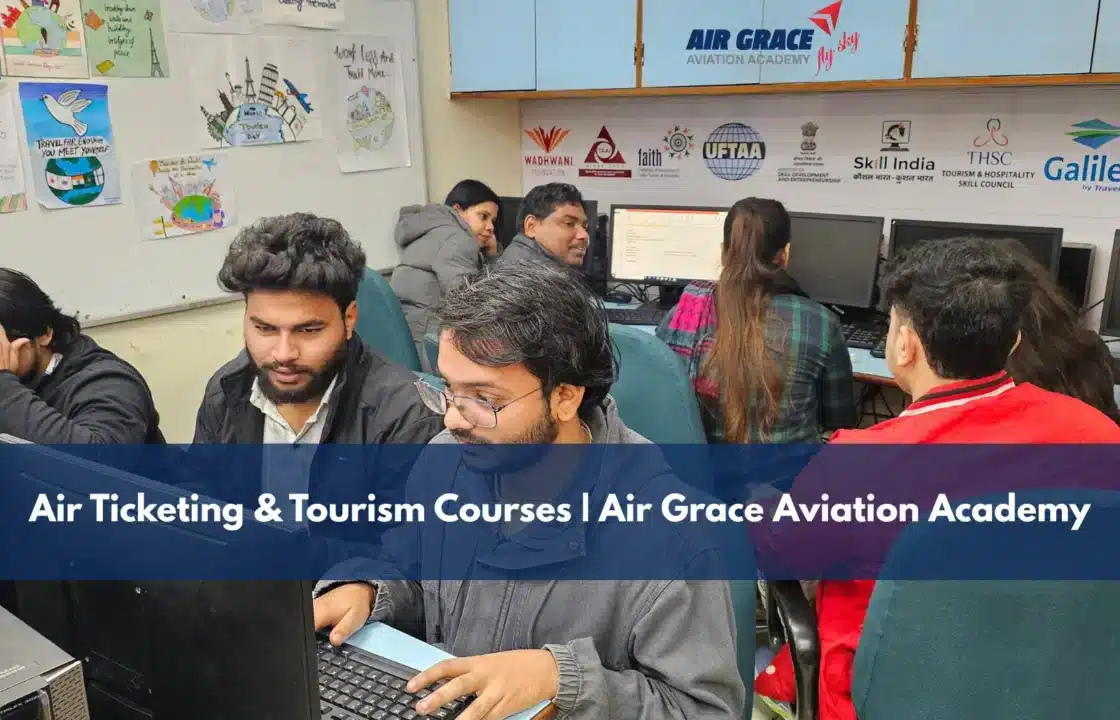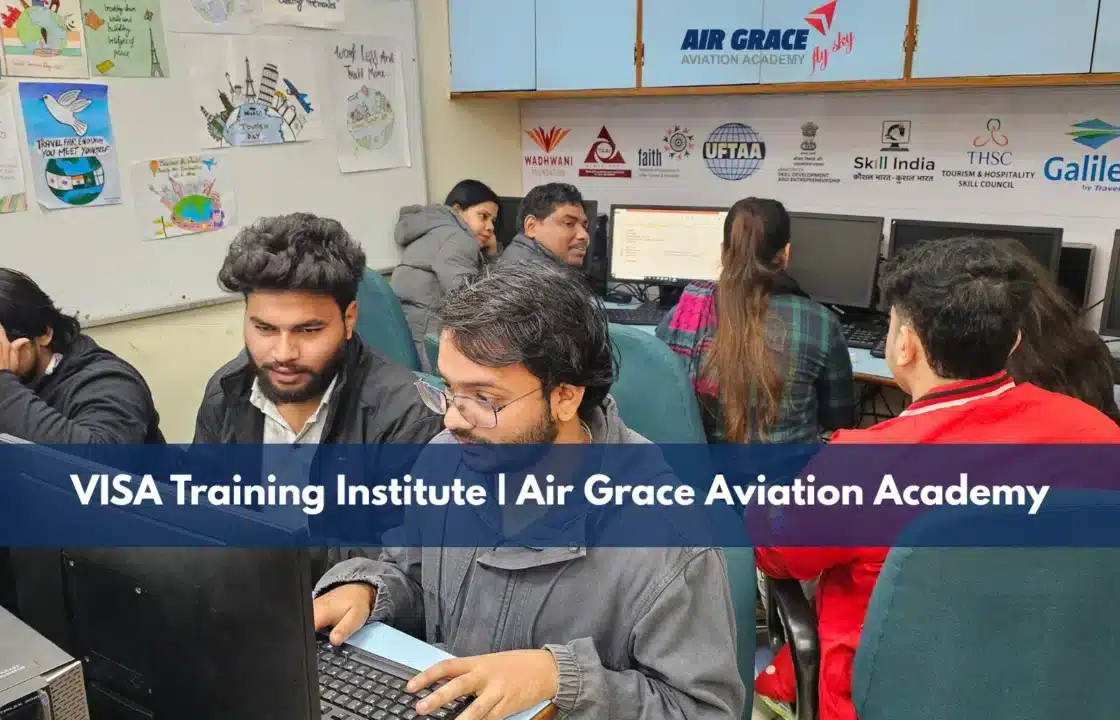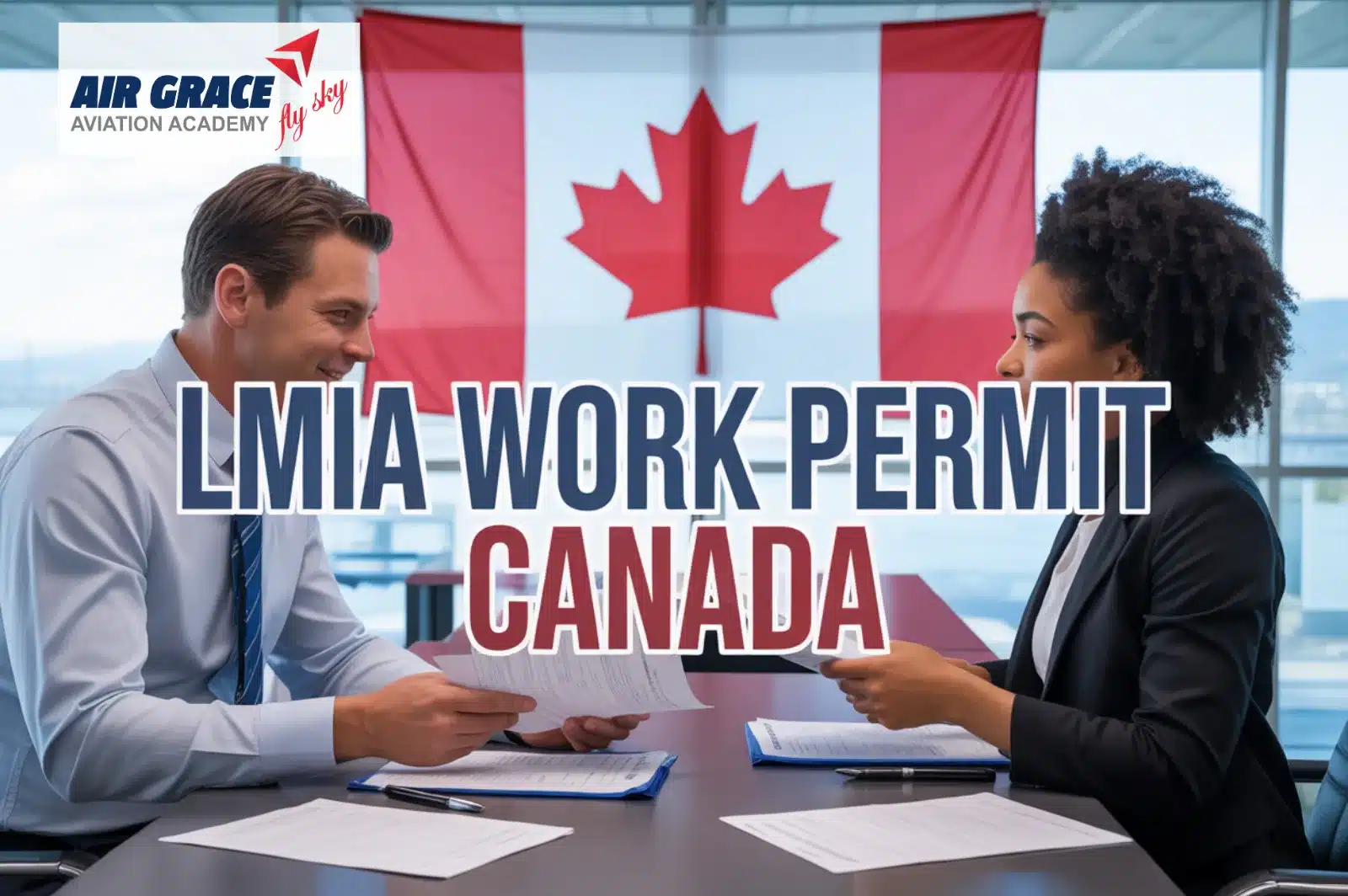
Table of contents
- Work Permit VISA LMIA Canada
- What LMIA means and why employers need it ?
- Key eligibility criteria for LMIA applications – Work Permit VISA LMIA Canada
- Work Permit VISA LMIA Canada-Common reasons for LMIA rejections
- Types of Work Permits Available Through LMIA
- International Mobility Program exemptions
- About Air Grace Aviation Academy
Work Permit VISA LMIA Canada
If you’re planning to work in Canada as a foreign worker, you’ll likely need a Work Permit VISA LMIA Canada – a crucial document that opens doors to employment opportunities across the country. This comprehensive guide is designed for international workers, employers, and immigration consultants who need to understand the LMIA (Labour Market Impact Assessment) process and how it connects to obtaining a Canada VISA.
The LMIA system can seem complex, but breaking it down into manageable steps makes the process much clearer. We’ll walk you through the essential LMIA requirements that determine your eligibility, explore the different types of work permits you can access through this pathway, and provide detailed VISA training on the step-by-step application process. You’ll also learn proven strategies for maximizing your approval chances and understand your rights once you receive your work permit.
Whether you’re starting your VISA filing journey or helping others navigate this process, this guide gives you the practical knowledge needed to succeed in Canada’s competitive job market.
Understanding LMIA Requirements for Canadian Work Permits
What LMIA means and why employers need it?

A Labour Market Impact Assessment (LMIA) serves as the government’s way of ensuring that hiring foreign workers won’t negatively affect the Canadian job market. When Canadian employers want to hire temporary foreign workers, they must first prove that no Canadian citizen or permanent resident is available to do the job.
Think of LMIA as a permission slip that employers need before they can extend job offers to international candidates. The assessment verifies whether bringing in foreign talent will fill genuine labour shortages or if it might take opportunities away from local workers. Immigration, Refugees and Citizenship Canada (IRCC) uses this assessment to determine if a work permit application should be approved.
Employers must demonstrate they’ve made genuine efforts to recruit Canadian workers first. This includes posting job advertisements for specific periods, offering competitive wages that meet prevailing wage standards, and showing that the position couldn’t be filled locally despite reasonable recruitment efforts.
Key eligibility criteria for LMIA applications–Work Permit VISA LMIA Canada
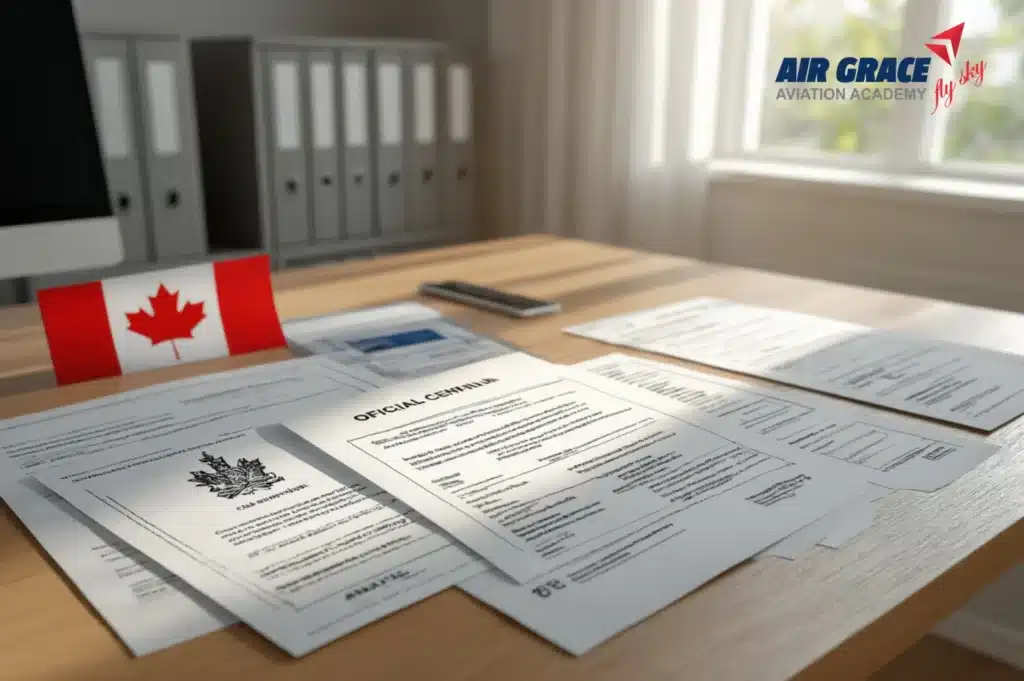
Several critical requirements must be met before employers can successfully obtain an LMIA approval. The hiring company must be legally operating in Canada with a legitimate business presence and a proven track record of compliance with employment standards.
Recruitment Requirements:
- Job postings must run for at least four weeks on the Job Bank portal
- Additional advertising through newspapers, online job boards, or recruitment agencies
- Documentation of all recruitment efforts and candidate responses
- Evidence showing why Canadian applicants weren’t suitable
Wage Standards:
- Offered wages must meet or exceed the median wage for that occupation in the specific region
- Benefits packages should align with industry standards
- Working conditions must comply with provincial labour laws
Business Legitimacy:
- Active business registration and good standing with provincial authorities
- Positive compliance history with immigration and employment laws
- Financial capacity to support the employment arrangement
- Clear business need for the specific position
The employer must also prove that hiring the foreign worker will create or maintain jobs for Canadians, contribute to skills transfer, or address legitimate labour shortages that cannot be filled through domestic recruitment.
Processing times and associated costs LMIA processing times vary significantly based on the stream and complexity of the application. Standard applications typically take 10-20 weeks, though this can extend during peak periods or if additional documentation is required.
Processing Time Breakdown:
- High-wage positions: 8-12 weeks average
- Low-wage positions: 12-20 weeks average
- Seasonal Agricultural Workers: 4-8 weeks
- Global Talent Stream: 10 business days (for qualifying positions)
Fee Structure:
- Standard LMIA application fee: $1,000 per position
- Some exemptions apply to certain streams, like caregivers
- Additional costs include advertising expenses and potential legal consultation fees
- Expedited processing isn’t available for most streams
Employers should budget beyond the basic application fee. Recruitment advertising costs can range from $500-$2,000, depending on the posting requirements. Many businesses also invest in immigration consultants or lawyers, adding $2,000-$5,000 to the total expense.
The investment becomes worthwhile when employers secure skilled workers who fill critical gaps in their operations. However, the financial commitment and time investment mean that LMIA applications should be strategic decisions rather than rushed hiring solutions.
Work Permit VISA LMIA Canada-Common reasons for LMIA rejections

Understanding why applications get rejected helps employers avoid common pitfalls. The most frequent rejection reasons stem from inadequate recruitment efforts or failure to meet wage requirements.
Recruitment-Related Rejections:
- Insufficient advertising duration or reach
- Job requirements that are too restrictive or unrealistic
- Failure to properly consider Canadian applicants
- Inadequate documentation of recruitment activities
Wage and Working Conditions Issues:
- Offering below median wage for the position and location
- Unclear or inadequate job descriptions
- Working conditions that don’t meet provincial standards
- Benefits packages significantly below industry norms
Business Capacity Concerns:
- Questionable financial stability of the employer
- Previous non-compliance with immigration or employment laws
- Unable to demonstrate genuine need for the position
- Insufficient evidence of positive economic impact
Documentation Problems:
- Incomplete application forms or missing supporting documents
- Inconsistent information across different sections
- Failure to provide required translations
- Missing signatures or incorrect fee payments
To maximize approval chances, employers should work with experienced immigration professionals who understand current LMIA requirements and can guide them through proper Canada VISA procedures. Thorough preparation and attention to detail during the VISA filing process significantly improve success rates.
Types of Work Permits Available Through LMIA

Temporary Foreign Worker Program permits
The Temporary Foreign Worker Program (TFWP) forms the backbone of Canada’s LMIA-based work permit system. This program requires Canadian employers to demonstrate they cannot find qualified Canadian workers for specific positions before hiring foreign nationals. TFWP permits come with strict conditions and monitoring requirements that both employers and workers must follow.
TFWP applications fall into different streams based on wage levels and skill requirements. High-wage positions (those paying above the provincial median wage) typically face fewer restrictions but require comprehensive recruitment efforts. Low-wage positions have additional requirements, including caps on the percentage of temporary foreign workers an employer can hire and mandatory transition plans to reduce dependence on foreign labour.
Processing times for TFWP applications vary significantly, ranging from several weeks to several months depending on the occupation, location, and completeness of the application. Employers must pay application fees and meet advertising requirements that span at least four weeks across multiple platforms.
The program also includes specialized streams for caregivers, agricultural workers, and seasonal positions, each with tailored requirements and conditions. Workers entering through TFWP receive closed work permits tied to specific employers, meaning they cannot change jobs without obtaining a new work permit.
International Mobility Program exemptions

The International Mobility Program (IMP) offers pathways for foreign workers to obtain Canadian work permits without requiring their employers to complete the LMIA process. These exemptions recognize that certain categories of workers bring significant benefits to Canada’s economy and society.
Common IMP categories include intra-company transfers, which allow multinational companies to move employees between offices. The NAFTA/USMCA provisions enable American and Mexican professionals in specific occupations to work in Canada. International agreements like CETA (Comprehensive Economic and Trade Agreement) with European Union countries provide additional exemption opportunities.
Reciprocal employment arrangements allow young people from participating countries to gain work experience in Canada through programs like the Working Holiday Visa. These bilateral agreements create opportunities for cultural exchange while filling labour market needs.
Significant benefit exemptions apply to workers whose employment creates substantial economic, social, or cultural benefits for Canada. This category includes entrepreneurs, investors, and individuals with exceptional skills or experience. The assessment focuses on the positive impact the worker will have on the Canadian economy or society.
IMP permits often provide more flexibility than TFWP permits, with some allowing open work authorization or easier employer changes. Workers should understand which exemption category applies to their situation and ensure they meet all specific requirements.
High-skilled vs low-skilled worker categories. The distinction between high-skilled and low-skilled workers significantly impacts LMIA applications and work permit conditions. This classification affects processing requirements, fees, and the rights workers receive under their permits.
About Air Grace Aviation Academy
Our Excellence!
- World-Class Training
Air Grace Aviation Academy is a global leader in aviation, travel, and hospitality education. Whether you’re starting your career, seeking advancement, or refreshing your skills, we offer a perfect blend of academic excellence and practical industry insights. - Experienced Faculty
Our team of expert trainers brings over 60+ years of combined industry experience. Learn directly from seasoned professionals who have worked with leading airlines, luxury hotels, and global travel agencies. - Comprehensive Curriculum
Our courses are meticulously designed to equip students with real-world skills, including cabin crew training, airport ground handling, air ticketing, hospitality management, and global distribution systems like Amadeus, Galileo, and Sabre. - Hands-On Practical Training
We believe in learning by doing. Students gain practical experience through role plays, mock scenarios, and live projects, ensuring they are job-ready from day one. - State-of-the-Art Facilities
Our campus in New Delhi features modern classrooms, dedicated computer labs, and simulated work environments to replicate real-world industry settings. - Global Opportunities
With partnerships and accreditations from Skill India, Tourism & Hospitality Skill Council (THSC), and global travel organizations like IATA, Air Grace provides students with an edge in securing international career opportunities.
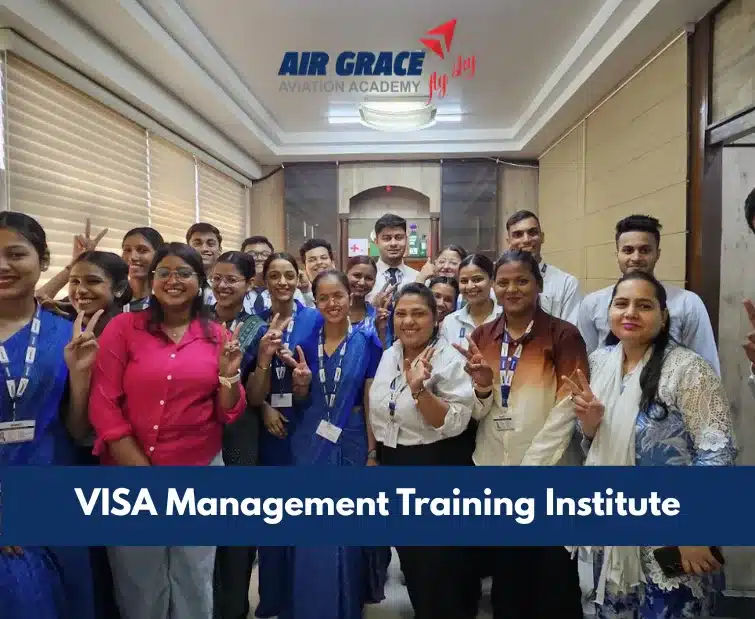
Frequently Asked Questions (FAQs): Work Permit VISA LMIA Canada
A: An LMIA (Labour Market Impact Assessment) is a document issued by Employment and Social Development Canada (ESDC). It confirms that there is a need for a foreign worker to fill a specific job in Canada and that no Canadian citizen or permanent resident is available to do the job. Most employers need a positive LMIA to hire a foreign national. You need it because it is a mandatory requirement for most employer-specific work permits.
A: The potential Canadian employer is solely responsible for applying for and obtaining the LMIA. They must demonstrate efforts to recruit Canadians first and meet all ESDC requirements. As a foreign worker, you cannot apply for an LMIA yourself.
A: The process involves two main stages:
Employer’s Stage: Your Canadian employer applies for the LMIA from ESDC.
Your Stage: Once the LMIA is approved, you use the positive LMIA document (and a job offer letter) to apply for your work permit from Immigration, Refugees and Citizenship Canada (IRCC).
A: Processing times vary significantly.
LMIA Processing: Can take from a few weeks for the Global Talent Stream (GTS) to several months for a regular stream, depending on the job and the stream used.
Work Permit Processing: After you receive the positive LMIA, work permit processing can take additional weeks or months, depending on your country of residence and the visa office. It’s best to check the official IRCC website for current processing times.
A: Yes. Certain situations are LMIA-exempt. These include:
Work under international agreements (e.g., CUSMA/USMCA, CETA).
Intra-Company Transfers.
Participants in youth exchange programs (International Experience Canada).
Jobs that provide significant cultural, economic, or social benefit to Canada (under the “Canadian interests” category).
A: LMIA Fee: The employer must pay a $1,000 CAD processing fee to ESDC for each position requested.
Work Permit Application Fee: The worker must pay a $155 CAD processing fee to IRCC.
Additional costs may include biometrics fees (85CAD),medicalexams,policeclearancecertificates,andlegal/consultancyfees.∗85CAD),medicalexams,policeclearancecertificates,andlegal/consultancyfees.∗
A: No. A positive LMIA is a crucial step, but it does not guarantee a work permit. IRCC will make the final decision on your work permit application based on your admissibility (health, security, criminality, and the genuineness of the job offer).
A: Yes. If you hold a valid work permit for a job classified under TEER 0, 1, 2, or 3 (formerly NOC 0, A, or B), your spouse or common-law partner may be eligible for an open work permit, allowing them to work for any employer in Canada. Your dependent children can also come with you and may study at the pre-school, primary, or secondary level without a study permit.
A: Absolutely. A valid job offer supported by a positive LMIA can significantly boost your Comprehensive Ranking System (CRS) score in the Express Entry system, dramatically increasing your chances of receiving an Invitation to Apply (ITA) for permanent residence. It is a key pathway to immigrate to Canada.
A: You can:
Self-apply by carefully following the guidelines on the official Government of Canada websites (ESDC and IRCC).
Hire an immigration lawyer who is a member of a Canadian provincial law society.
Hire a Regulated Canadian Immigration Consultant (RCIC) who is a member of the College of Immigration and Citizenship Consultants (CICC). Always ensure any representative you hire is authorized and in good standing.*
Disclaimer: Immigration policies change frequently. For the most accurate and up-to-date information, always refer to the official Government of Canada websites for IRCC and ESDC.
For Contact Air Grace Aviation Academy – 085274 4636
More VISA Course Details:
